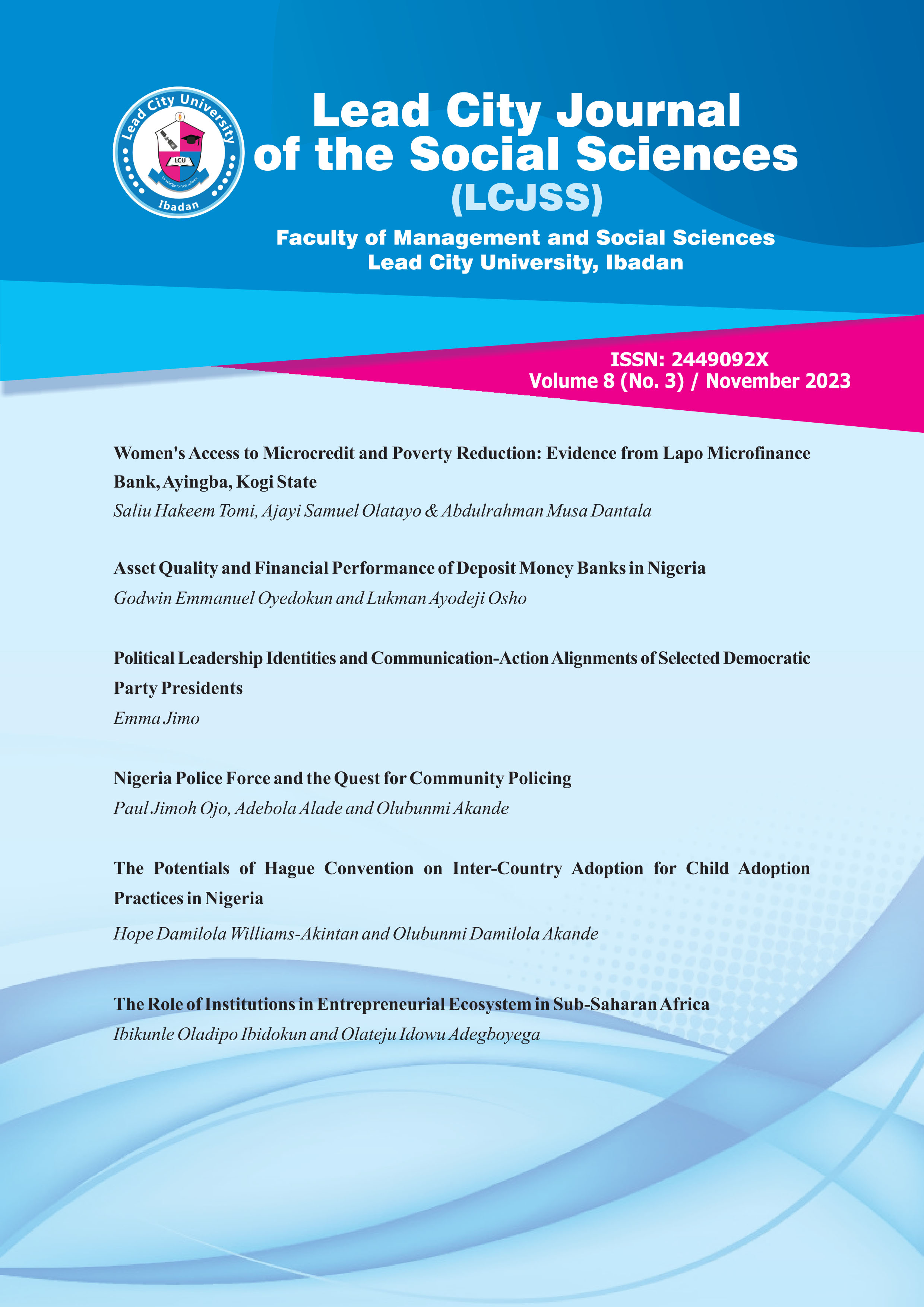The Potentials of Hague Convention on Inter-Country Adoption for Child Adoption Practices in Nigeria
Potentials of Hague Convention on Inter-Country Adoption for Child Adoption
Keywords:
Hague Convention, Children, Child Adoption, Orphanage, Inter-country AdoptionAbstract
The Hague Convention on Inter-country Adoption is founded on the concepts that necessitate a far more audacious attempt to regulate and manage inter-country adoption on a worldwide scale. This study is centered on the significance of the 1993 Hague Convention on inter-country adoption. This convention places priority on child's best interest during adoption processes. The focus on the child's interest is achieved by taking into account the principle's international, regional, and national legal provisions, as well as their interpretation and application in child adoption practices. In the long run, the convention will contribute in the development of new initiatives to promote bilateral and multilateral adoption relations. The objectives of this study are to accentuate the importance of the Hague Convention on the Adoption of Children in Nigeria and to explore the issues as regard to Child Adoption in Nigeria. This study found that, while inter-country adoption is legal in Nigeria, implementing Hague Convention on Inter-country Adoption will be beneficial in preventing child abduction, sale, or trafficking. One of the study's recommendations is the Hague Convention will be beneficial to the Nigerian government as evaluation would show areas where the Hague Convention’s implementation process is
deficient, allowing the government to offer alternative methods to streamline the process. This would also benefit adoption agencies by increasing the effectiveness and significance of the educational and infrastructure services provided to people seeking adoption.

